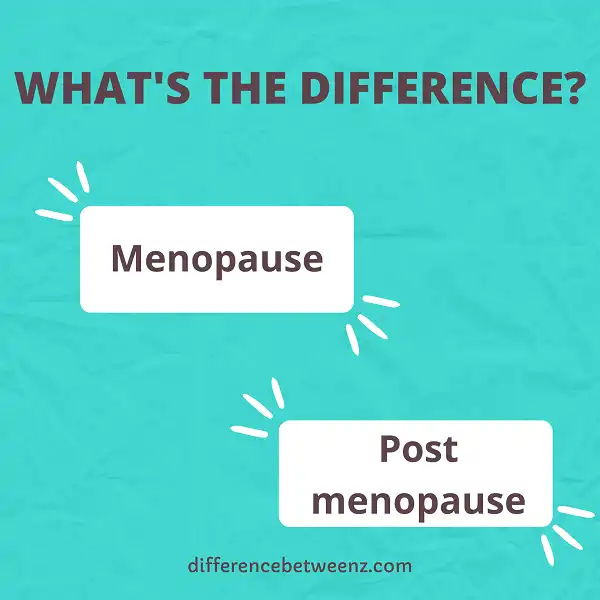What you may not know is that there is a significant difference between menopause and Postmenopause. Menopause is the time in a woman’s life when her ovaries stop producing eggs, while Postmenopause is the time after menopause has occurred. Many postmenopausal women experience changes in their body, including symptoms like hot flashes and night sweats.
What is Menopause?
Menopause is the cessation of menstruation in women. It is a natural process that usually occurs between the ages of 45 and 55, although it can occur earlier or later in some women. During menopause, the ovaries stop producing eggs and the level of the hormone estrogen decreases. This can cause a variety of symptoms, including hot flashes, sleep problems, vaginal dryness, and mood swings. Menopause is not a disease, but it can be a difficult time for some women. There are treatments available to help relieve symptoms and there are also lifestyle changes that can help women through this transition.
What is Postmenopause?
Once a woman has reached menopause, she is considered to be post-menopausal. This typically occurs around the age of 51, when a woman has her last menstrual period. At this point, her ovaries have stopped producing eggs and her levels of the hormones estrogen and progesterone have decreased. As a result, post-menopausal women may experience a number of changes, including hot flashes, night sweats, vaginal dryness, and difficulty sleeping. In addition, they may also be at increased risk for osteoporosis, heart disease, and other health problems. While these changes can be difficult to adjust to, there are a number of treatments available to help minimize their impact. With the right support, post-menopausal women can still lead active and enjoyable lives.
Difference between Menopause and Postmenopause
Menopause is the biological transition in a woman’s life when she stops ovulating and her menstrual periods end. The average age of menopause is 51 in the United States, though it can occur anywhere between the ages of 45 and 55. A woman is considered to be in postmenopause once she has gone 12 months without a menstrual period. Some women may experience menopausal symptoms, such as hot flashes and night sweats, for several years leading up to menopause. Others may not have any symptoms at all. Once a woman reaches postmenopause, she no longer has to worry about unplanned pregnancy. However, she may be at an increased risk for certain health conditions, such as osteoporosis and heart disease.
Conclusion
Although menopause and postmenopause are often thought of as one in the same, there is a big difference between the two. Menopause is the time in a woman’s life when her menstrual periods stop, while post-menopause is the time after menopause has occurred. Post menopause can be a time of great change for women, as their bodies adjust to life without estrogen. For some women, this adjustment period can be difficult, but with proper care and support, most women will thrive in postmenopause.


